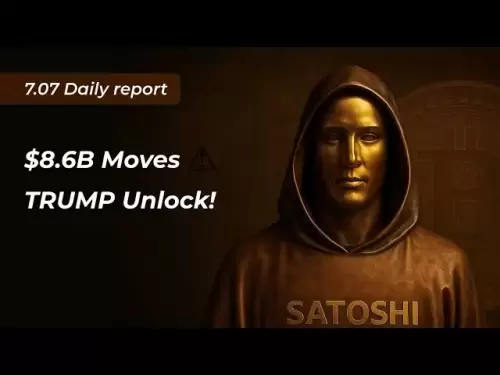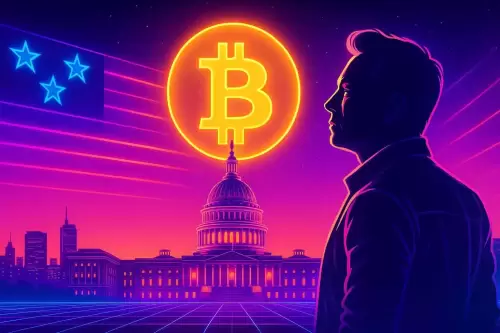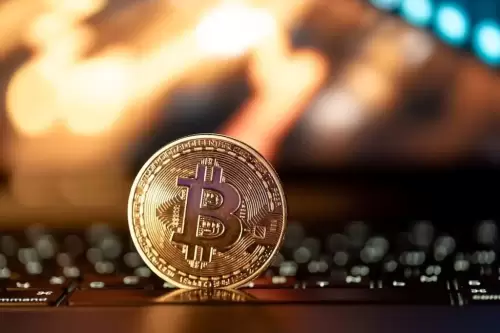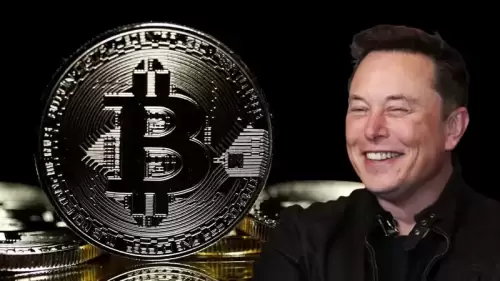 |
|
 |
|
 |
|
 |
|
 |
|
 |
|
 |
|
 |
|
 |
|
 |
|
 |
|
 |
|
 |
|
 |
|
 |
|
Cryptocurrency News Articles
Bitcoin: Freedom Money vs. Dictators - A Human Rights Perspective
Jul 07, 2025 at 09:22 am
Explore Bitcoin's role as a tool for human rights, its potential to circumvent authoritarian control, and its evolving geopolitical significance.

Bitcoin: Freedom Money vs. Dictators - A Human Rights Perspective
Bitcoin, human rights, freedom money - these aren't just buzzwords; they're intertwined threads in a narrative about financial sovereignty and resistance against oppression. This blog post dives into the key insights surrounding Bitcoin's impact on human rights and its potential as 'freedom money,' drawing from recent discussions and developments in the crypto space.
Bitcoin as a Human Rights Tool
Alex Gladstein, a strategist at the Human Rights Foundation, made a compelling statement at a recent Bitcoin Policy Summit: "Bitcoin is bad for dictators." This perspective highlights Bitcoin's potential to undermine authoritarian control by offering a means of financial independence outside the reach of oppressive regimes.
Dictatorships often rely on control over the money supply, surveillance, and censorship to maintain power. Bitcoin, with its decentralized nature, offers a way to circumvent these controls. As Gladstein points out, governments can't freeze or erase your Bitcoin if you hold your own keys, nor can they inflict hyperinflation upon it.
From Ukraine to Global Geopolitics
Bitcoin's role as a tool of resistance isn't theoretical. During the Ukrainian revolution in 2013, the Human Rights Foundation used Bitcoin to support protestors whose bank accounts had been frozen. This allowed them to bypass traditional financial channels and continue their activism.
Interestingly, even major powers like the United States are recognizing Bitcoin's strategic value. The U.S. government has been accumulating Bitcoin through judicial seizures, building a national strategic reserve. This illustrates Bitcoin's dual nature: a shield for the oppressed and a potential instrument of power for sovereign states.
The Satoshi-Era Wallets and the Roger Ver Connection
In other news, the crypto community was recently buzzing about massive Bitcoin transfers from wallets associated with the Satoshi Nakamoto era. While speculation initially pointed to Satoshi cashing out, Arkham Intelligence indicates Satoshi's holdings remain intact.
Attention then turned to early Bitcoin adopters, with Roger Ver, also known as "Bitcoin Jesus," emerging as a potential suspect. Ver faces fraud and criminal tax charges in the U.S., leading some to speculate that he might be selling Bitcoin to cover legal expenses. While there's no concrete proof linking Ver to these transactions, the rumors highlight the ongoing intrigue surrounding Bitcoin's early figures.
Navigating the Bitcoin Landscape: A Word of Caution
While Bitcoin offers immense potential for financial freedom, it's crucial to use it responsibly. Gladstein warns that even a simple technical oversight can compromise anonymity and expose users to surveillance. Protecting your privacy is paramount when using Bitcoin as a tool for resistance.
Final Thoughts
Bitcoin's journey from a niche digital currency to a potential force for human rights and geopolitical power is nothing short of remarkable. Whether it's empowering activists in authoritarian regimes or becoming a strategic asset for nations, Bitcoin continues to redefine the landscape of finance and freedom. So, buckle up, because this is just the beginning of Bitcoin's wild ride!
Disclaimer:info@kdj.com
The information provided is not trading advice. kdj.com does not assume any responsibility for any investments made based on the information provided in this article. Cryptocurrencies are highly volatile and it is highly recommended that you invest with caution after thorough research!
If you believe that the content used on this website infringes your copyright, please contact us immediately (info@kdj.com) and we will delete it promptly.






























































